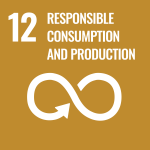3-in-1: Tackling obesity while re-using waste sustainably
ChemistryCan address health issues
Europe is facing an obesity challenge that places a tremendous burden on its healthcare systems. One way of addressing this issue is by adapting our diets. Balancing taste while limiting sugar and calories is a challenge in food production.
IFF has developed a type of xylitol, a naturally occurring wood-based sweetener with all the taste and sweetness but 40% less calories than sugar. Xylitol is widely approved for use in food around the world, and is suitable for use in oral hygiene products, pharmaceuticals, cosmetics and toiletries.
The xylitol has unique dental health properties as it is proven to inhibit caries formation and plaque growth. The sweetener also appears to have positive effects on skin health when applied topically.
ChemistryCan put waste streams to good use
Not only does the sweetener address the obesity challenge, its production tackles another issue: waste products.
At IFF, the xylose producing facility is integrated with a pulp and paper plant. Pulp and paper plants typically produce a waste side stream – consisting of black liquor – that has a high carbohydrate content and energy value. At the site in Austria, this carbohydrate side stream does not go to waste, it is used to produce the intermediate xylose.
Once the xylose is extracted, the remaining side stream is returned back to the pulp and paper plant for for energy and material recovery, fully closing the loop.
The circular economy concept used by IFF to produce the xylitol uses minimal energy and virtually no chemicals. This leads to a considerably lower environmental footprint than conventional corncob-based xylitol.
ChemistryCan produce sweeteners sustainably
To top it all off, the production process of the sweetener uses only side streams from hardwood originating from local and sustainably managed forests.

